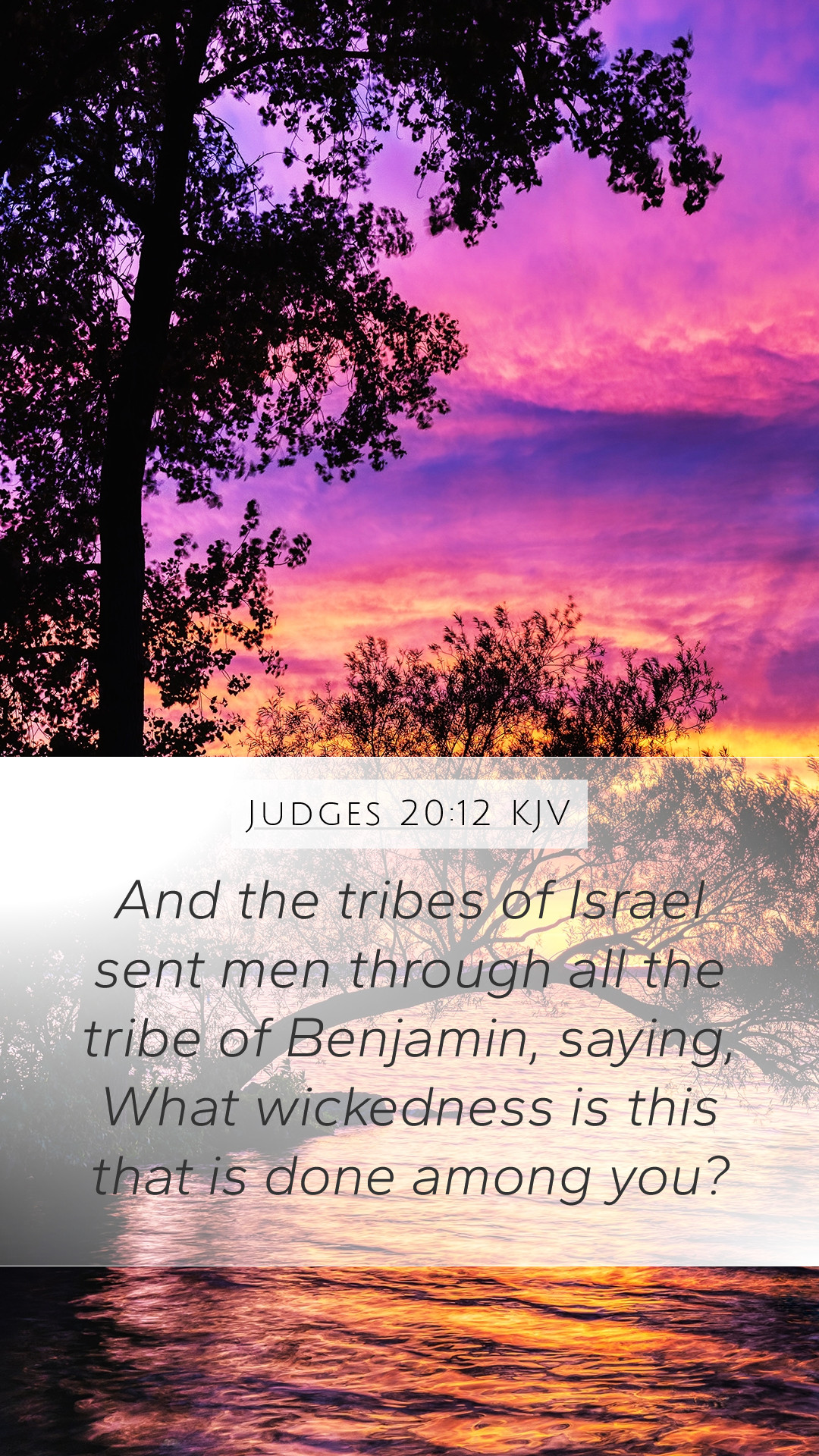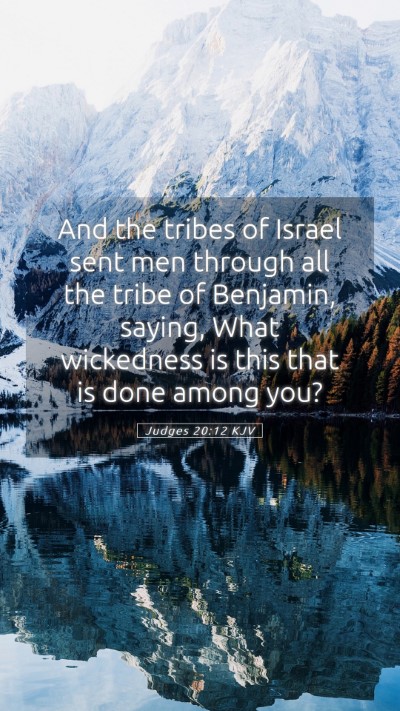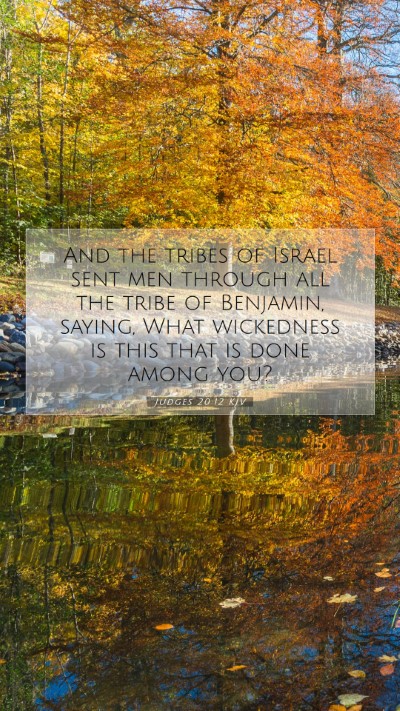Understanding Judges 20:12
Bible Verse: Judges 20:12 - "And the tribes of Israel sent men through all the tribe of Benjamin, saying, 'What wickedness is this that is done among you?'"
Overview
This verse occurs within a significant narrative that reflects the moral and social deterioration in Israel during the time of the Judges. It represents Israel's collective response to a grievous crime and seeks to restore justice.
Verse Meaning and Context
Judges 20:12 encapsulates a moment of inquiry and motivation for justice among the tribes of Israel. The context revolves around a shocking act of violence committed by the men of Gibeah in Benjamin, highlighting issues of sin and communal responsibility.
Bible Verse Commentary
-
Matthew Henry's Commentary:
Matthew Henry emphasizes the grave nature of the sin that had taken place in Gibeah, focusing on the collective outrage expressed by the tribes of Israel. He underscores the seriousness with which they approach the issue, recognizing the need for accountability within their community. This serves as a reminder of the necessity for justice and the dangers of moral decay.
-
Albert Barnes' Notes:
Barnes notes the importance of inter-tribal communication during this crisis, suggesting that the tribes' inquiry is not just about the event but also about the implications for society as a whole. This inquiry serves as an invitation to reflect on their own actions and the state of their unity in addressing sin.
-
Adam Clarke's Commentary:
Clarke brings attention to the broader implications of the events leading up to this verse. He suggests that the actions of the tribe of Benjamin were not only wicked but also representative of a failure to uphold the covenantal responsibilities expected of God’s people. This highlights the need for introspection and repentance among the tribes.
Historical Context
Understanding the historical backdrop is crucial to grasping the depth of Judges 20:12. The period of the Judges is marked by cycles of sin, oppression, and deliverance, whereby each tribe faced their unique struggles while attempting to follow God’s law amidst surrounding nations. The crime at Gibeah disrupted any semblance of communal harmony and underscored the deterioration of moral standards.
Application in Modern Context
This verse invites modern readers to consider the implications of sin within a community and the importance of collective responsibility. It serves as a call to action for individuals and groups (such as bible study groups) to address wrongdoing within their circles and pursue justice through dialogue, accountability, and a commitment to God's standards.
Furthermore, it challenges believers to actively engage with challenging issues in society and seek out biblical solutions, promoting unity in faith and practice.
Related Bible Cross References
- Judges 19:22-30 - The account of the grievous crime committed against the Levite's concubine.
- 1 Samuel 8:3 - The request for a king, highlighting the societal demand for leadership and integrity.
- Proverbs 29:2 - The principle that when the righteous are in authority, the people rejoice; but when wicked men bear rule, the people mourn.
Conclusion
Judges 20:12 serves not only as a historical account but invites deep bible verse interpretations that resonate through time. The anguish expressed by the tribes reflects a deep longing for justice, urging all believers to uphold righteousness within their communities. The lessons drawn from this scripture remain pertinent, urging modern believers to reflect on their roles as agents of change and justice in a world requiring moral clarity.
Further Bible Study Insights
For those seeking to enhance their bible study insights and understand the scripture further, consider exploring the following:
- Bible study lessons focusing on communal sin and accountability.
- Online resources offering bible study guides that tackle justice in society.
- Courses on the significance of the Old Testament narratives in contemporary Christian living.


